While the best episodes of Star Trek: The Original Series have withstood the test of time, others seem incredibly dated by today's standards. Many of the TOS episodes worth skipping contain the show's worst examples of the casual sexism of the 1960s, as well as other similarly outdated views. Part of Star Trek's charm comes from its ability to deliver profound social commentary one week and goofy space hijinks the next. While many episodes of TOS season 1 are too good to miss out on, you won't miss much by skipping the following six episodes.
6"Charlie X"
Star Trek: The Original Series Season 1, Episode 2
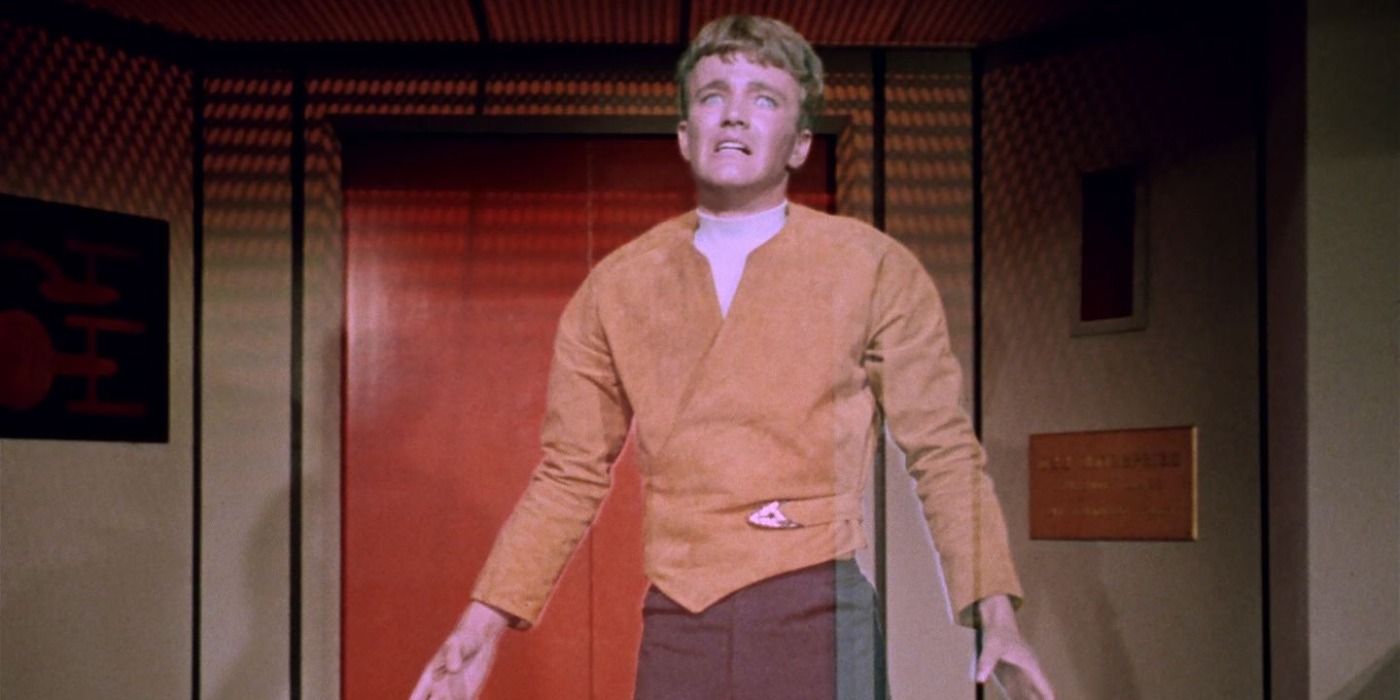
When the USS Enterprise picks up Charlie Evans (Robert Walker), the sole survivor from a crashed transport ship, the teenage boy soon begins displaying incredible powers. Charlie develops an inappropriate obsession with Yeoman Janice Rand (Grace Lee Whitney), making her disappear when she rejects his advances. The powerful Thasians eventually return to take Charlie back, as they realize the abilities they granted him make him too dangerous to live among humans.
5"Mudd's Women"
Star Trek: The Original Series Season 1, Episode 6
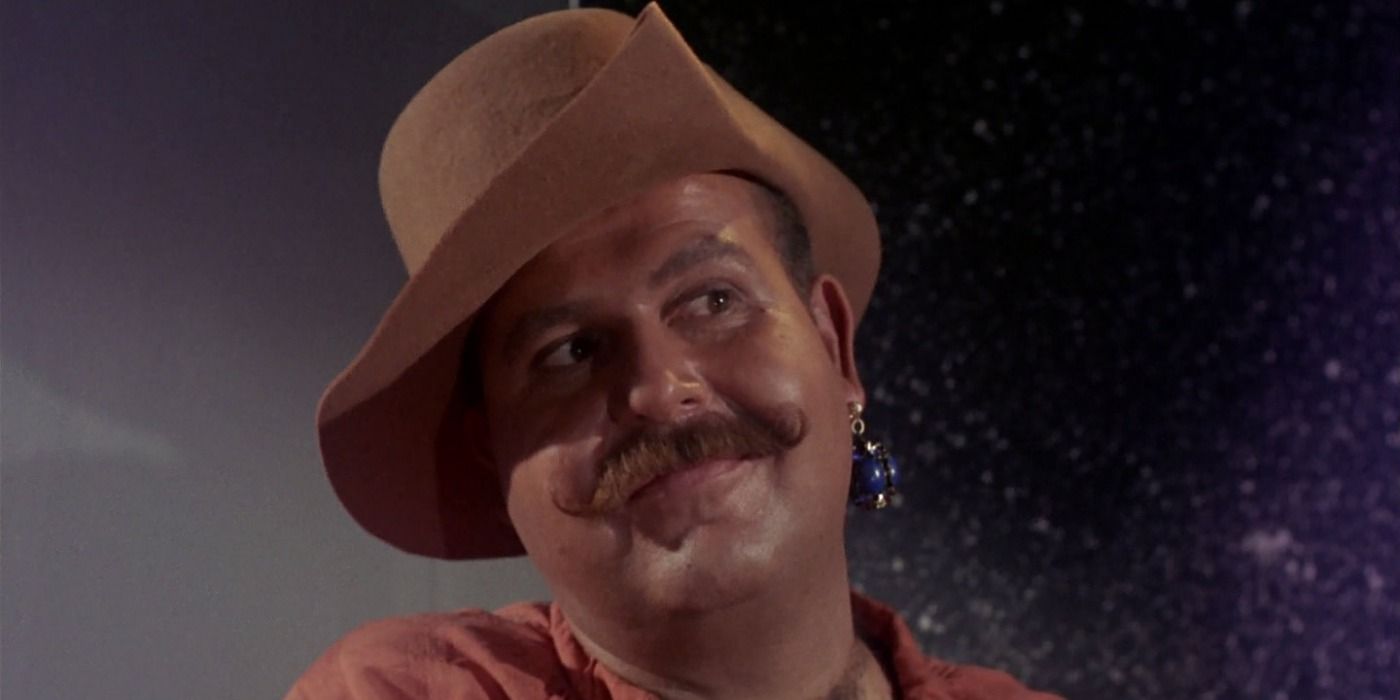
In "Mudd's Women," the Starship Enterprise rescues the occupants of an unregistered cargo ship captained by a con man known as Harry Mudd (Roger C. Carmel). Mudd, who has an extensive criminal record, is accompanied by three stunningly beautiful women. Captain Kirk discovers that Mudd has been giving the women the Venus drug to make them irresistible to men. The three women eventually decide to remain with a group of miners on the planet Rigel XII.
Captain Kirk has a romance with one of the women, Eve (Karen Steele), and offers to take her with him. Eve, however, makes the astute observation that Kirk's true love will always be the Enterprise.
4"Miri"
Star Trek: The Original Series Season 1, Episode 8
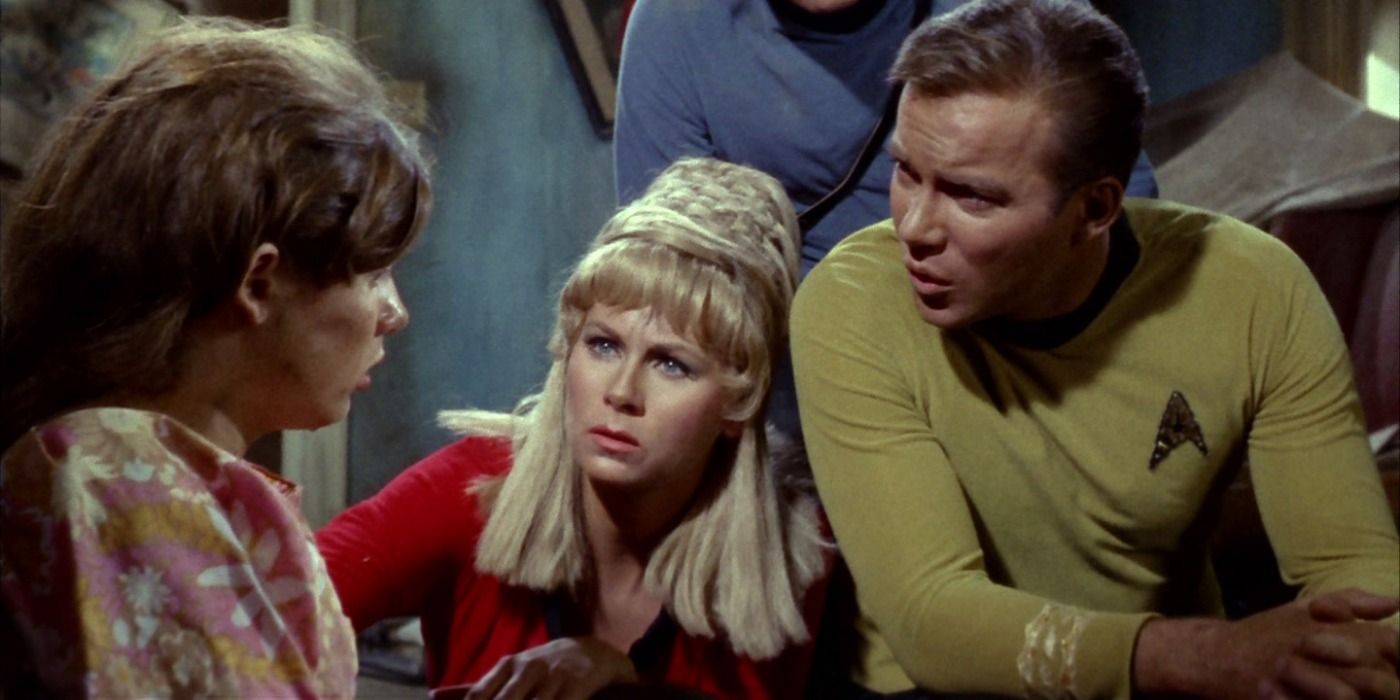
When the USS Enterprise encounters a planet that just happens to be nearly identical to Earth, they find a group of children as the only surviving inhabitants. One of the oldest children, a girl named Miri (Kim Darby), reveals that the planet's adults all died from a mysterious plague. The members of the landing party, excluding Spock (Leonard Nimoy), are soon infected by the disease, and Kirk eventually convinces Miri and the other children to help him find a cure.
3"The Return Of The Archons"
Star Trek: The Original Series Season 1, Episode 21
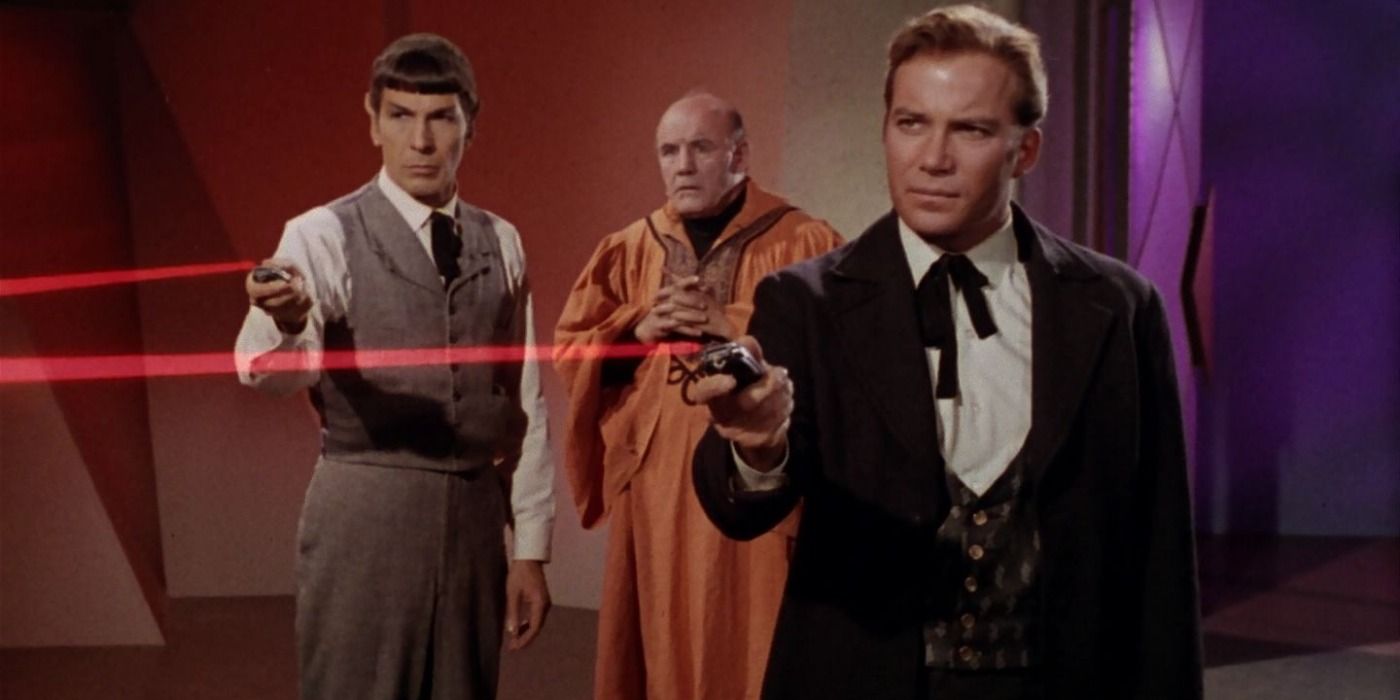
"The Return of the Archons" follows Captain Kirk and his crew as they investigate an Earth-like planet with a stagnant culture ruled over by a dictator named Landru. Cloaked "lawgivers" patrol the planet seeking out anyone who is not under Landru's control. Meanwhile, heat beams from the planet are targeting the Enterprise and will force the ship to crash if they are not turned off. Kirk eventually discovers Landru to be an ancient computer system, and he talks the computer into destroying itself, thereby freeing the planet's people.
"The Return of the Archons" contains the first mention of Starfleet's Prime Directive, which Kirk states only "refers to a living, growing culture."
2"The Alternative Factor"
Star Trek: The Original Series Season 1, Episode 27
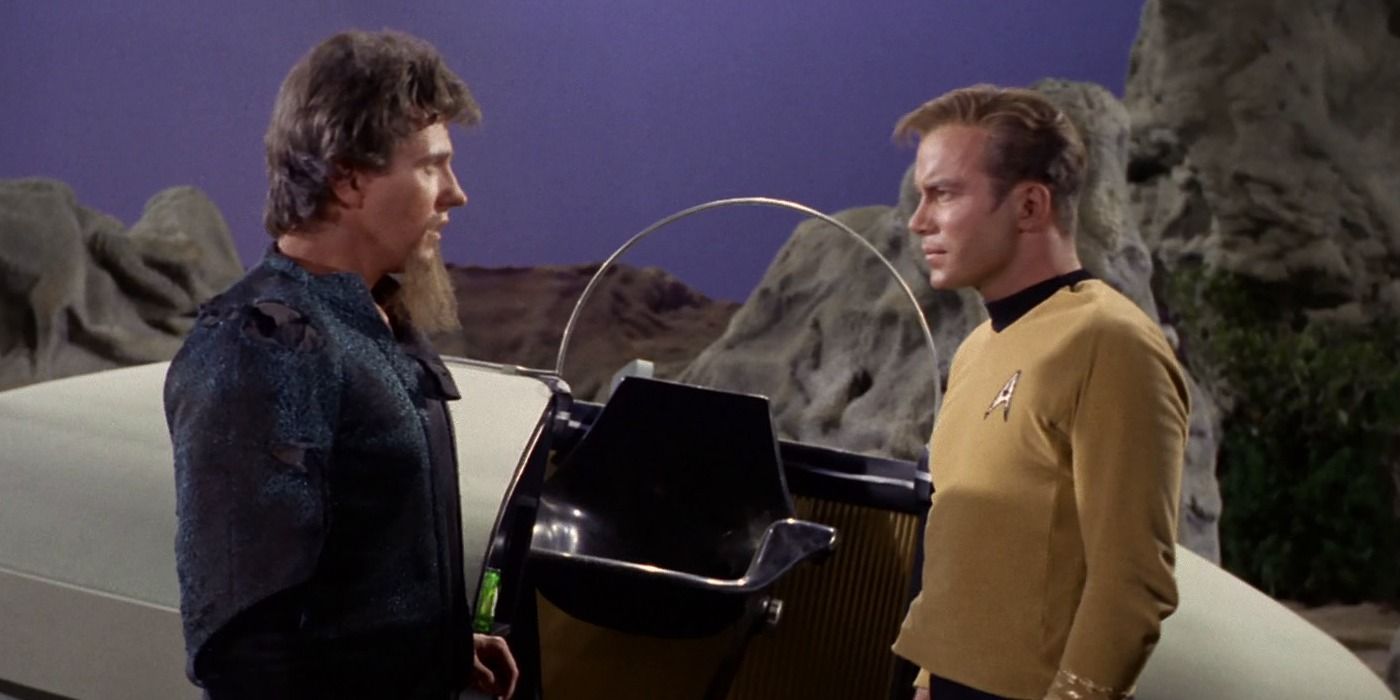
"The Alternative Factor" is often cited as one of Star Trek's worst episodes, and it certainly lives up to that reputation. The story follows two different men named Lazarus (Robert Brown), one from our "matter" universe and one from the "antimatter" universe. The two beings keep blinking in and out of existence as they travel between universes, and if they ever come in contact with one another, it will destroy both universes entirely. In the end, the two Lazaruses end up trapped between dimensions while Captain Kirk vaporizes the ship that connects the two universes.
While Star Trek has certainly told some nonsensical stories over the years, nothing about "The Alternative Factor" makes any sense. The story itself is unnecessarily confusing, and the matter/antimatter explosion premise does not track with what we know about the Enterprise (the warp engine is powered by a matter/antimatter reaction, after all). Plus, the entire universe winks in and out of existence multiple times, which is not taken nearly as seriously as it should be. Overall, the less said about this episode, the better, making it one of the easiest to skip.
1"Operation: Annihilate!"
Star Trek: The Original Series Season 1, Episode 29
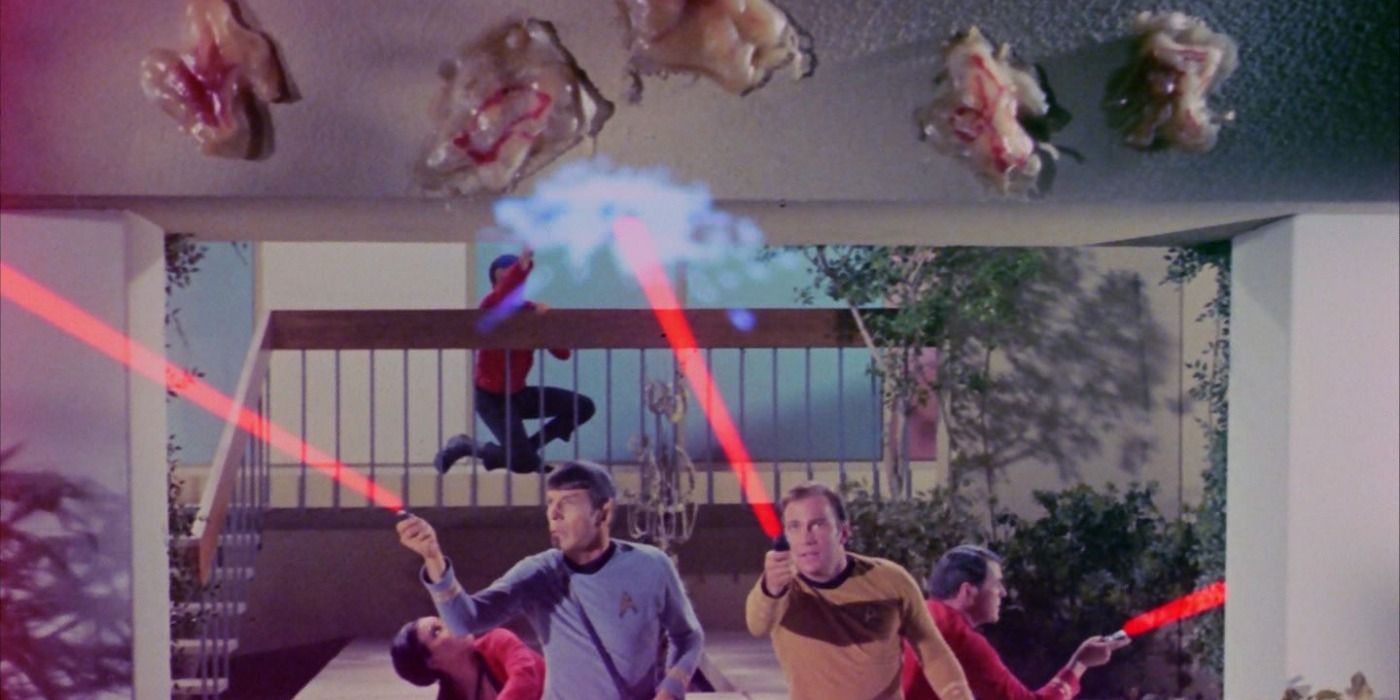
Star Trek: The Original Series season 1's finale is the lackluster "Operation: Annihilate!." When the Enterprise visits the planet Deneva, Captain Kirk finds most of the planet's inhabitants, including his brother Sam (William Shatner), have been killed or seriously injured by flying parasites. Kirk finds Sam's wife, Aurelan (Joan Swift), and their son, Peter (Craig Hundley), still alive, but Aurelan soon dies. Kirk, Spock, and McCoy eventually figure out that ultraviolet light will kill the parasites, and they save the remaining survivors and thwart any further attacks.
As the television shows of the 1960s did not have traditional season finales, "Operation: Annihilate!" cannot be faulted for that reason, but it can be faulted for not being a very good episode of Star Trek. The episode is notable for the death of Kirk's brother, but Sam has only been mentioned in dialogue once before, and Kirk doesn't seem all that bothered by his death. Also, Spock goes temporarily blind (but we know he won't stay that way), we never learn what happened to Peter, and the flying parasite aliens look bad even for 1960s standards.




